- Home
- Bette Lee Crosby
The Twelfth Child Page 10
The Twelfth Child Read online
Page 10
Alongside Abigail’s feet there was a rivulet of water draining out into the aisle. She bent over and rescued the little girl who had lived inside the globe for more years than anyone knew. The glass world was shattered and bits of make believe snow scattered about; there was also a small chip in the Christmas tree but, the little girl was in one piece. Abigail brushed bits of glass from the figurine then folded it into Livonia’s lace hanky and tucked it inside of her purse. In doing so she noticed the figurine’s smile seemed brighter than ever—like Abigail; the little girl was about to discover a new world.
Isaac was still screaming when Abigail got up and moved to the seat across the aisle. She took out the Harper’s Bazaar Magazine that Will had gotten her in Lynchburg and started leafing through the pages. The man sitting alongside her had an oversized sack of sandwiches in his lap.
“Want one?” he asked and offered out the sack.
“No thank you,” Abigail replied, remembering the politeness Livonia had drummed into her head.
“I’ve got plenty. Cheese. Baloney. Apple butter.”
“No thank you,” she repeated and turned back to focusing her attention on the flapper dress in Harper’s. She narrowed her eyes and squinted at the picture until she could see her own face on the flat-chested model.
“How about an apple; or some homemade cookies?”
Homemade cookies, now that was a thing Abigail couldn’t resist. “Well,” she said, “perhaps a cookie.”
The man reached beneath his seat and hauled up an even bigger bag. “Go ahead,” he said, “help yourself to a handful.”
Abigail stuck her hand into the sack and pulled out two big round oatmeal cookies. “Umm,” she said, “my favorite.”
“Me, I like cheese sandwiches. Could eat twenty of them, I suppose.” As the man chomped down on the sandwich he was holding, a sizable chunk of cheddar spit off and dropped into his beard. The man seemed not to notice. “Where you headed?” he asked Abigail.
“Richmond.” She smiled broadly. “I’m going to work with an almost famous woman who writes poetry!”
“Well, now. Ain’t that something! You want more cookies?”
“Uh-uh.” Abigail shook her head but her eyes got fixed on the piece of cheese in the man’s beard. No matter how vigorously he chewed or talked, the cheese didn’t let go. If it had been her papa, she would have reached up and brushed it away; but this man was a total stranger. She tried to focus on something else, so as not to be rude. “Where you going?” she asked.
“Parkerton. I got family in Parkerton.”
Abigail had never heard of Parkerton, but imagined it to be quite a distance away, judging by the amount of food in the man’s sack. Before she had a chance to inquire about the actual whereabouts, the conductor came through the car yelling, “Parkerton, next stop.” He called it out twice because of Isaac’s wailing.
“Time for me to go,” the man said. He clambered over Abigail’s satchel and squeezed into the aisle. As the train rolled to a stop, he reached into his bag and pulled out two more oatmeal cookies. “Hang onto these,” he said, “you’ll be hungry later.”
After he left, Abigail quickly slid over into his seat because it was alongside a window. As soon as she’d settled in, she took the hem of her dress and began polishing up the glass so she’d be certain to see all there was to see.
As the train rumbled through Brownell County, she kept her nose pressed to the glass, watching bean fields and apple orchards whiz by. Here and there she’d spot a farmhouse or a town smaller than Chestnut Ridge but mostly it was endless acres of farmland. After two hours of watching long stretches of green Abigail leaned back in her seat and took out Miss Ida Jean Meredith’s pink envelope.
She reread the letter over and over again, each time trying to imagine what it would be like to live in Richmond. She pictured dwellings of every shape and size; from a townhouse so tall a person would have to stretch their neck to see the roof, right down to a tiny cottage ringed with roses. Abigail Anne had the ability to do that—draw pictures inside of her head instead of taking a pencil to paper. Once she’d settled on the image of a wide-spread house with the veranda painted the yellow of a sunflower; she started picturing what Miss Ida Jean Meredith would look like. First she envisioned a tall woman with a crown of silver hair; but that was too severe so she changed the image to a more rounded woman with ample breasts and cheeks as rosy as a ripe peach. Although unable to put her finger on exactly what was wrong, Abigail sensed that neither of those pictures were right. She finally fashioned a Miss Meredith that looked a lot like Livonia—which seemed to work surprisingly well.
By then Isaac had quieted down, and without that distraction she found herself wondering what her papa would say when he discovered she was gone. Abigail had thought of leaving a letter to explain her actions—she’d even sat down at the table and tried to write one on three different occasions; but the words were missing. Her father had next to no forgiveness in his heart and nothing she could say would cause him to feel differently. Finally she’d set the pen aside; thinking such a letter would be better written in the future, after time had lessened William’s anger. With Henry it was a different story; he’d understand. The truth was that all along he’d known where Abigail’s heart was leading her—he’d tried to tell William, but William had insisted otherwise. When thoughts of Henry came to mind Abigail found herself earnestly wishing that he’d find a new sweetheart to bake the peach pies he’d come to love.
When the sun became red and day faded into dusk Abigail went back to studying the pages of Harper’s Bazaar. For a long while she sat there picturing herself in cloche hats and silk stockings; then dusk gave way to the black of night and she fell asleep drifting back into the world of Harper’s Bazaar. In the dream she was wearing a lace dress with a wide blue sash and dancing the waltz with a courtly slender-built man. Everything was as lovely as she’d known it would be; but, when she looked into her partner’s face she saw the saddened eyes of Henry. Abigail woke with a start just as the conductor came through bellowing “Richmond, next stop, Richmond!”
The train rumbled into Richmond, a place so lit up with electric lights it looked like the middle of the day. Abigail had always been favorably impressed with the wooden station house at Lynchburg, but this station was four times the size, and it was bustling with porters hauling suitcases and steamer trunks.
Abigail took a look out the window and felt her heart jump. These were the people from Harper’s Bazaar Magazine! She tugged her suitcase from the overhead rack and moved toward the door. Out on the platform, a man in a brass-buttoned suit was doing nothing but holding the hand of ladies as they stepped down from the train and saying, “Welcome to Richmond.” Abigail set her satchel down and extended her hand as the other ladies had, but when she stepped from the train she stumbled over her own feet. “Careful,” the platform man said and he smiled.
Abigail had never seen so many people in one place. She twisted her head one way and then the other, eyeing fancy ladies and men dressed as though they worked in bank. She didn’t notice the man standing at the far back of the platform although he stood a good head taller than most of the others and had skin blacker than the richest soil of the Shenandoah Valley. He was the one who came up to her and asked, “You Miss Abigail Anne?”
She nodded.
“I’m Frederick,” the big man said, “Miss Meredith sent me to fetch you.” He bent, picked up both suitcases and told her to follow him. “Now, stay close,” he warned, “else you could get lost.”
Miss Meredith’s house was nothing like any of those Abigail had imagined. It was a modest two-story, painted the pink of an evening sky and set far back from the street. In the front yard were dozens of rhododendron bushes in full bloom and a weeping willow that had grown taller than any other tree on the block. Abigail believed it to be the grandest house she had ever laid eyes on.
Miss Meredith, a bent over woman who supported herself with the aid of a cane, was waiting in the
doorway. “Welcome to my home, Abigail Anne,” she said, and then told Frederick he should take the bags upstairs and place them in the rose bedroom. “We’ve a late supper waiting,” she said and led Abigail into a dining room where the table was set with fine china and crystal.
“Oh, my!” Abigail exclaimed and let out a whoosh of air.
Miss Meredith smiled. “You’re going to enjoy living here, Abigail. Richmond is a lovely city with many things to do.”
After they had eaten a supper of cold chicken and thick slices of fresh tomatoes, Abigail retired to what Miss Meredith called the rose room, for what reason she couldn’t imagine, because it was decorated in varying shades of yellow. She took her dresses from the suitcase and hung them in the closet, but they now seemed frumpy and drab in comparison to the outfits worn by the ladies at the train station. “Oh dear,” Abigail sighed, then she washed her face, pushed open the window and climbed into bed. As she lay there in the darkness thinking of how she would spend her very first pay on a new frock, one with a wide sash that circled her hips, the scent of roses drifted in on the cool night air.
Abigail quickly settled into Miss Meredith’s schedule which was to rise early and rest in the heat of the afternoon. By seven each morning they were at work, Abigail pecking away at the typewriter keys as Miss Meredith expounded on an abstract collection of thoughts. After lunch, Miss Meredith napped but Abigail usually returned to the typewriter and practiced; some days she remained there so long that her hands felt locked into position. At night, she dreamt of her fingers stretching out to reach letters like Y or Z and her hand gracefully sliding the carriage back to its starting position. Less than a month after her arrival, Abigail sat down at the typewriter and clacked out a letter to her brother.
Dear Will,
I have arrived in Richmond and am doing fine. As you can see, I have already learned to use Miss Meredith’s typewriting machine. She is a fine lady and is teaching me many new things. Every night we have supper in the dining room and when I use the wrong fork, Miss Meredith is pleasant enough about pointing out my mistake.
Last week we went to the talking picture show which, even here in Richmond, is considered most modern. Tomorrow evening we are going to the Symphony and Miss Meredith bought me a new dress to wear. It is the latest fashion. Papa would fall over dead if he saw me in it. Mister Frederick, who is also in Miss Meredith’s employ, drives us around town in a Pierce Arrow automobile that is so shiny you can see your face in it.
I am very happy and know for certain that I have done the right thing in coming here. I am hoping to become a writer like Miss Meredith, but instead of poems I shall write stories of courageous women, which is something Mama would be proud of. I pray that you and Papa are doing well. I hope he has forgiven me for running off the way I did, but knowing Papa, he likely never will.
Abigail typed her name then removed the sheet of paper and folded it into an envelope addressed to Rebecca Withers.
Throughout the entire first year she continued to write such glowing letters. Week after week, she told how Miss Ida, as she came to address her benefactor, had taken her to Carter’s Department Store, the largest in all of Richmond, and how they lunched in a tea room with fresh flowers on every table and brocade draperies at the windows. She told of the concerts and ballets they attended and how she had gotten her hair cut into a bob. It’s the very latest, she wrote, the most fashionable ladies are all wearing it. In most every letter she inquired about her father and whether or not it appeared that he had forgiven her behavior. Although Will answered every letter, he never answered that question.
Abigail slipped into her new life as if it were a satin dress. She’d start out walking across the street and suddenly she’d be floating, stepping along on a feathery cloud with her toes barely touching the ground. Every evening the housekeeper drew a warm bath laced with fragrant crystals of jasmine, then Abigail would soak herself in the claw-footed tub and smooth her skin with rosewater and glycerin. After a while, the calluses on her hands disappeared and along with them went the memory of her life on the farm. Livonia’s apron was folded and tucked into the bottom drawer of her dressing table for Abigail no longer had need of such a thing, she’d become a fine lady.
Everything changed after her second summer in Richmond. It happened on a Monday in October, when the crackle of fall was in the air and pots of yellow chrysanthemums were lined up along the walkway. Miss Ida, who usually insisted they dine at six so that at seven she could listen to Amos and Andy, wrinkled her brow and said, “There’s been stories of terrible happenings in New York. Tonight we must listen to Mister Winchell and learn the truth of the matter.” After supper, she called for Abigail, Frederick and Anna Mae, to join her in the parlor; then she turned the radio dial to the somber-voiced newscaster telling how people in New York City were jumping out windows because they had lost everything they owned in the stock market. “Oh, My Lord,” Miss Ida repeated over and over, twisting her lace hankie into a knot.
Anna Mae, who had spent the last thirty years cooking for Miss Ida and never been outside of Richmond, had no knowledge whatsoever of the New York Stock Exchange, but she knew by the tears in Miss Ida’s eyes that the situation was serious. “Now, don’t you go fretting, Miss Ida,” she said, “Them New York folks is plain out crazy, ain’t no such thing gonna happen here.” After that Anna Mae scurried out of the room saying that she’d fix up some hot chocolate to make everyone feel a bit better. But before she could return with the tray of cocoa and shortbread cookies, Miss Ida had poured herself a full snifter of brandy.
Abigail thought Anna Mae spoke good sense, and reasoned that poets did have a tendency to portray things in a far too dramatic fashion. She remembered the day Miss Ida had gotten herself into a tizzy over an article she’d read in Ballyhoo Magazine – she steamed and snorted for days, even wrote letters to three congressmen, a senator and President Hoover, but eventually it was all forgotten. Abigail decided that this stock market thing was just such another instance and would soon enough blow over. Before the sound of Walter Winchell’s voice died away she had drifted off to thoughts of attending the ballet in the green satin dress she’d seen displayed in the front window of Carter’s Department Store.
One week later Ida Jean Meredith received a telephone call from Walter Crimmins at the bank. He did most of the talking; she just stood there with the receiver pressed to her ear and a stream of tears rolling down her face. After she’d hung up the receiver, she didn’t say a word to anyone, just lowered herself into the rocking chair and started humming – no specific song, just a monotonous drone that had the sound of a hurt dog. When Anna Mae announced lunch was served, Miss Meredith didn’t even turn an eye, she just kept creaking her chair back and forth, back and forth. The very next day she told both Anna Mae and Miranda, the cleaning woman, that she would no longer be needing their services. “We’ll have to make do” she tearfully sobbed to Abigail. “There’s no other choice.”
“Make do?” Abigail replied soulfully, never imagining that it would fall upon her to do the cleaning and cooking. “Does that mean we won’t –”
“It means I’ve barely enough money to feed us!” Miss Ida moaned, and then she started to cry in huge shuddering sobs. After that, Miss Meredith did little more than wobble back and forth in her rocking chair from dawn until dark, no longer bothering to bathe or dress herself. “It costs too much to heat bath water,” she’d say, “We’ve no money for such luxuries.”
In November, the chrysanthemums wilted and turned brown but no one bothered to cart the pots away. A curtain of gloom settled over the once cheerful house and day after day the shutters to the study remained closed. Ida Jean Meredith had been halfway through the third verse of a poem about the simple joy of a songbird, but she ceased writing. When prompted to continue on with her verse, Miss Meredith replied, “Joy?” her eyes glazed over with a bewildered expression as if she could no longer comprehend the meaning of such an emotion.
Ab
igail’s silk dresses hung in the closet gathering dust as she scoured the floors and laundered their clothes in cold water and lye soap. Her hands once again grew raw and callused; the skin on her right thumb split open and bled, then it crusted over and split open again. She rummaged through cupboard after cupboard searching for a bit of cream or rosewater and glycerin to soothe her skin, but there was nothing and she cursed the fact that she had used it up so wastefully. Most every night she cried herself to sleep, praying that when she woke in the morning this horror would be a nightmare that had come and gone, instead she would wake to find a lump of self pity stuck in her throat and the thought of food banging away at her brain. For breakfast she’d gulp down a bowl of oatmeal, all the while dreaming of hot chocolate thick with cream, and at dinnertime she’d imagine the watery soup of potatoes and onions to be a thick stew. Once in a great while there might be a hambone in the pot and then she would lose all pretenses and gnaw at it until every last drop of marrow was sucked clean. On nights when she crawled into bed feeling the emptiness of her stomach press against her spine, Abigail called to mind a picture of the fat bellied cook stove that warmed the old farmhouse kitchen – she could almost smell the thick slabs of bacon sizzling in an iron skillet and taste the biscuits, so buttery they drizzled down onto her chin.
When winter came, she took to wearing heavy wool stockings in the house because Miss Ida was fearful of wasting the meager supply of fuel. “We’re fortunate to have a roof over our head and a bit of food for the table,” the old woman would say – but Abigail did not feel fortunate, in fact she felt miserable. Despite the wool shawl pulled tight around her shoulders, a chill needled into her spine and at times caused her to long for the warmth of Henry Keller’s embrace. When the wind blew and frost iced the ground, she sunk into a bottomless sense of loss and began to wonder if there was such a thing as going back.

 Emily, Gone
Emily, Gone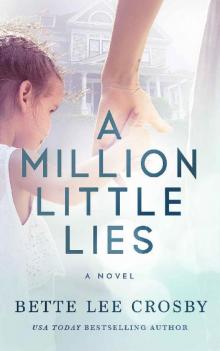 A Million Little Lies
A Million Little Lies Previously Loved Treasures
Previously Loved Treasures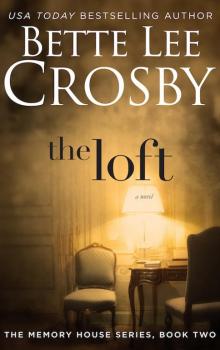 The Loft
The Loft Spare Change
Spare Change Memory House: Memory House Collection (Memory House Series Book 1)
Memory House: Memory House Collection (Memory House Series Book 1) Silver Threads
Silver Threads Wishing for Wonderful: The Serendipity Series, Book 3
Wishing for Wonderful: The Serendipity Series, Book 3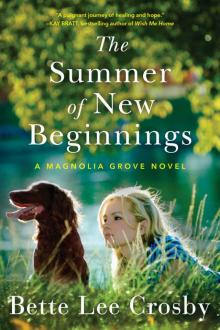 The Summer of New Beginnings: A Magnolia Grove Novel
The Summer of New Beginnings: A Magnolia Grove Novel The Regrets of Cyrus Dodd
The Regrets of Cyrus Dodd Passing Through Perfect
Passing Through Perfect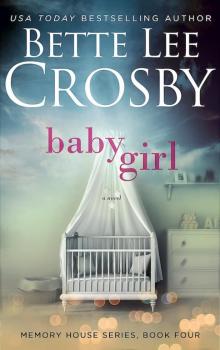 Baby Girl
Baby Girl Jubilee's Journey
Jubilee's Journey Beyond the Carousel
Beyond the Carousel What the Heart Remembers
What the Heart Remembers Cupid's Christmas
Cupid's Christmas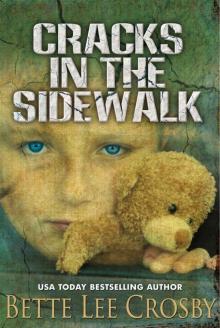 Cracks in the Sidewalk
Cracks in the Sidewalk Blueberry Hill
Blueberry Hill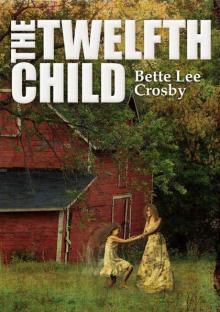 The Twelfth Child
The Twelfth Child A Year of Extraordinary Moments (A Magnolia Grove Novel)
A Year of Extraordinary Moments (A Magnolia Grove Novel)